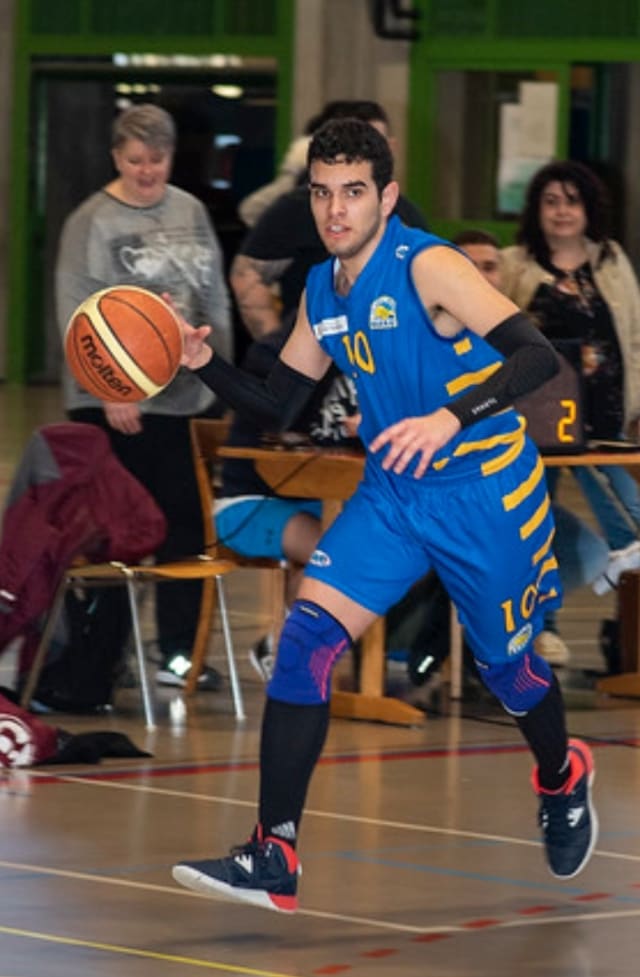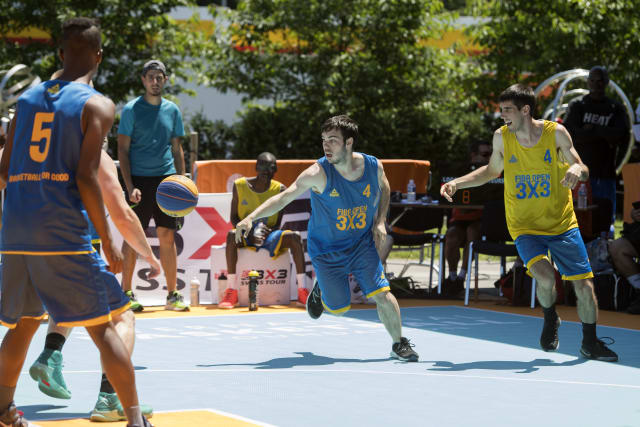Celebrating the International Day of Persons with Disabilities
MIES (Switzerland)-On the Int. Day of Persons with Disabilities, celebrations are mitigated for Special Olympics and entities using sports as a tool for social integration of people with disabilities
MIES (Switzerland) - On the International Day of Persons with Disabilities in 2021, celebrations are mitigated for Special Olympics and entities using sports as a tool for social integration of people with disabilities.
According to research done by Special Olympics, around 2,5 million athletes globally have lost all access to Special Olympics in 2020 due to restrictions and health fears.
“We call it a family, once you don’t have it anymore it’s hard, you notice how important it is, so coming back was great!"-Badara Top, Special Olympics Coach
Special Olympics Europe Eurasia is fighting back on behalf of their athletes with Faces of Basketball, a unique online-offline activity hub and campaign designed to reach and engage athletes across Europe.
The FIBA Foundation is supporting the campaign by sharing the plight of 2 Special Olympics athletes in Switzerland and their journey with basketball.
Enrique, 22, discovered basketball 3 years ago when a friend took him to a practice in a Special Olympics team in Vevey, Switzerland. “I thought it was fascinating, I liked meeting new people and developing my skills” he explains.
 Enrique treading the courts
Enrique treading the courts
His teammate Julien, 22, is also passionate about basketball: “I like playing, I’m happy when I play with my team, it allows me to clear my mind and think of other things”, he said. “It helps me with my concentration and my mental strength, I know I am capable of many things and I’m able to understand my teammates”.
When the pandemic started however, trainings had to stop “I was very frustrated to not be able to play, especially tournaments. We had been going strong and then everything just stopped” Enrique said. Julien was also very disappointed to have to stop playing.
Their coach Badara Top, who has been coaching the team since 2012, emphasizes the difficulty they all faced: “Not being able to play was really hard on everybody. Within our club, we really worked hard to be able to keep the contact with our athletes We tried to adapt and to maintain as much activity as we could, but it was hard, we lost 5 or 6 of the 20 players. We are still rebuilding now. For a lot of them, it is their only physical activity during the week, so it is important for their health. It is one of their rare social activities, they get to hang out with other players. They were eager to be back”.
 Julien at the FIBA Open
Julien at the FIBA Open
Thanks to the Foundation’s inclusive FIBA Open 3x3 tournament, the team was able to take part in a 3x3 tournament. “I’ve played a few times in the tournament in Mies, I like this tournament. I like 3x3 because it’s shorter and faster, we never stop running” said Julien.
Enrique also enjoyed the tournament, “the atmosphere was amazing, it was great!”.
Badara was glad that they were able to take part in the event: “The participation of my athletes meant a lot to me in terms of integration. They have been playing for a long time, some are good basketball players but it’s often hard for them to participate in public events that should be open to everybody. It’s not only about being open but being prepared in how to welcome these different players and I think the FIBA Open has done a good job with this, basically now it’s a no-brainer for those kids, they just want to participate. They don’t think about the barrier”
Badara explains the joy of getting back to the courts “It’s amazing to be able to start playing again. Sometimes you don’t notice how much something is important to you until you don’t have it anymore. For a lot of us, it really highlighted how important our team and basketball are. We call it a family, once you don’t have it anymore it’s hard, you notice how important it is to so coming back was great!”
He understands the particular importance of basketball for his athletes “Sports is important and good for everybody but with this population the difference is they are often more susceptible to health issues both mentally and physically”.
Badara continues, “participating in basketball makes you run and sweat a lot and improves your balance, your coordination, your stamina. More importantly, it trains your brain to be able to think faster, to react faster, to understand team concepts and strategies, it helps them to go further and develop their mental capacities”
“It helps me with my concentration and my mental strength, I know I am capable of many things and I’m able to understand my teammates”
He concludes, “one of the big things in Special Olympics is trying to make sure everyone has a chance to achieve success, it’s a big booster for your self-confidence. Being able to compete, to work hard, to train and then achieve success, they then think “I’m able to do it, I’m a basketball player, I’m part of a basketball club, a culture”. It’s very important for their confidence and makes them so much prouder of themselves.
Both Enrique and Julien are looking forward to their first 5 v 5 tournament of the season this weekend, “We were able to start training again but we had to get back into the rhythm, I’m looking forward to playing this weekend because I might win a medal”, said Julien.
About Basketball For Good:
The FIBA Foundation is the social and legacy arm of FIBA that addresses the role of sports and particularly basketball in society, preserving and promoting basketball’s values and its cultural heritage.
The FIBA Foundation believes that basketball has the power to empower, educate and inspire youth and facilitates this by implementing Basketball For Good projects around the world.